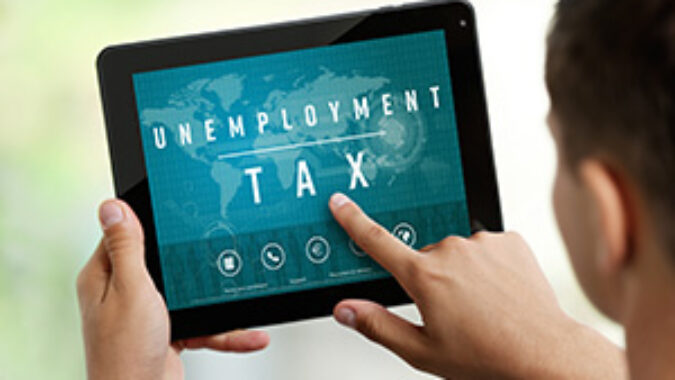On behalf of our member companies that provide approximately 1 million jobs in our State and make NJBIA the largest statewide business association in the nation, thank you for the opportunity to speak with you today in strong support of S-733 (Madden, Singleton).
NJBIA supports Chairman Madden’s S-733 because it accomplishes three things that are sorely needed in terms of the unemployment insurance (UI) payroll tax and the UI Fund that is funded by that tax:
- Reduce Pending Payroll Tax Increase by More Than $300 Million: Currently, thanks to swift action by you, the Legislature, employers will see a UI payroll tax increase from what they paid before the pandemic of approximately $1 billon over 3 years instead of an automatic, all-at-once hike. We thank you for softening that tax increase. However, nearly $1 billion in new taxes is still a difficult added burden for employers as our economy is trying to recover from the impact of COVID-19 – and the tax increase was only necessitated because businesses were forced to lay people off. The payroll tax rate is governed by columns based on the health of the UI fund and rows based on individual employer experience ratings. We are in the middle of the first year of this tax increase with the rate increasing from column B to C, with payroll taxes increasing by approximately $300 million. Next year in FY23, the state moves from column C to D and payroll taxes are again forecasted to increase by about another $300 million. In FY24, the column is set to increase from D to E, the most onerous of the increases at more than $300 million. S-733, however, adjusts the columns so that it stays at D and wipes away that last tax increase.
- Per OLS FY22 budget documents at https://www.njleg.state.nj.us/legislativepub/budget_2022/DOL_follow_up_response_SBA.pdf, you can see the estimated UI payroll tax increases over the next 3 years:
- $252 million higher in current FY22
- $296.6 million more in FY23
- $336.4 million hike in FY24 (would be eliminated under S-733)
2. Pays Off Federal UI Loan & Avoids Unnecessary Interest Payments: With the massive drain on the UI fund from the giant COVID-caused spike in unemployment, the federal government advanced New Jersey and many states millions of dollars, as designed to do in times of high unemployment, to ensure everyone receives their needed benefits regardless if the state fund was empty. The federal government waived interest on this loan for most of the pandemic due to the unprecedented disaster, but recently it began charging interest again. New Jersey is now paying millions of dollars in interest to the federal government, while we are sitting on billions of rescue/recovery dollars from the federal government. This would be akin to putting money under your mattress instead of paying off credit card bills to avoid unnecessary and burdensome interest. S-733 will eliminate this federal loan and the interest payments we make on it by only using a fraction of the ARPA funding the state has available. Paying off this loan more quickly, as S-733 proposes, will also expedite the replenishment of the fund, and potentially lead to a quicker improvement in its health and a quicker payroll tax decrease down the road.
3. Transparency on a State Tax Increase That is Not Controlled by State Legislature: Interestingly, one of the biggest, if not the biggest, state tax increases not controlled by the Legislature is the UI payroll tax. . As mentioned earlier, the rates are automatically set based on the health of the overall fund and the individual employer’s experience laying people or not laying people off. A fund depleted of cash with an employer that has laid off many employees over the years means a high UI payroll tax rate, while a healthy fund with lots of cash with an employer that always maintains his or her staff results in a low payroll tax rate. Given that the Legislature should care about billion-dollar tax hikes and their impact on our state economy, they should be warned about them. Yet they are often provided little to no advanced notice about the health of this fund and if a payroll tax increase or decrease is coming. It is good policy for the New Jersey Department of Labor & Workforce Development to better notify the Legislature about the fund and possible tax changes tied to it. They should consider tax policy in a broader context with more information about other tax changes occurring outside the Legislature.
This bill also ties to the Legislature’s recent bi-partisan and bi-cameral affordability agenda. NJBIA thanks you for moving some recent bills to address property taxes, income tax brackets and retirement savings, and S-733 fits right in with those. UI payroll taxes are a tax on jobs that every employer (except for some nonprofit employers) pays. If you employ someone, you pay it and you pay any increases regardless of whether or not you lost income. It is NOT a tax on income or property or corporate profit or wealth, but a tax on the mere existence of a job. At a time when we want to recover the jobs lost due to the pandemic and many businesses, especially small businesses, lost significant income during the pandemic, the state should not be in the business of making job creation and retention less affordable. Worse yet, other states are not making their jobs less affordable to employers as we could be without this bill, so our competitive position with other states gets hurt by not passing it.
There is also precedent for this bill. The New Jersey Legislature created a law to artificially adjust the columns for the UI payroll tax rate in the Great Recession and earlier in the pandemic as referenced above, and this bill is just an extension of that. Additionally, the solution to use federal money to support the UI fund is not unique to New Jersey. A majority of states in the nation have deposited some portion of their CARES Act or ARPA funding into their state’s UI fund.
- According to NCSL at ARPA State Fiscal Recovery Fund Allocations (ncsl.org), the following 18 states allocated ARPA funds to replenish UI or pay down federal UI loans:
- Alabama – $79.5 million
- Arizona – $758.8 million
- Connecticut – $155 million
- Hawaii – $705.6 million
- Indiana – $500 million
- Iowa – $237.5 million
- Kansas – $500 million
- Kentucky – $1.1 billion
- Louisiana – $490 million
- Maine – $80 million
- Maryland – $830 million
- Nevada – $335 million
- New Mexico – $656.6 million
- Ohio – $1.5 billion
- Texas – $7.2 billion
- Utah – $100 million
- Virginia – $862 million
- Washington – $500 million
- Also, according to NCSL at State Actions on Coronavirus Relief Funds (ncsl.org), the following 20 states have put some CARES Act federal funds into UI:
-
- Alabama – $385 million
- Arkansas – $156 million
- Delaware – $209 million
- Georgia – $2.2 billion
- Idaho – $200 million
- Indiana – $400 million
- Iowa – $490 million
- Louisiana – $85 million
- Maine – $295 million
- Mississippi – $181.8 million
- Missouri – $300 million
- Montana – $200 million
- Nebraska – $427 million
- New Hampshire – $50 million
- North Dakota – $260 million
- South Carolina – $500 million
- Tennessee – $400 million
- Virginia – $210 million
- Washington – $25 million
- Wyoming – $25 million
Thank you for advancing S-733 today, a bill that will reduce a 3-year nearly $1 billion tax hike to a 2-year almost $600 million increase while getting the UI fund healthier sooner with greater transparency around it. NJBIA looks forward to continuing to work with you all to make this bill law, to help our businesses and economy recover from the pandemic and to advance your affordability agenda.






